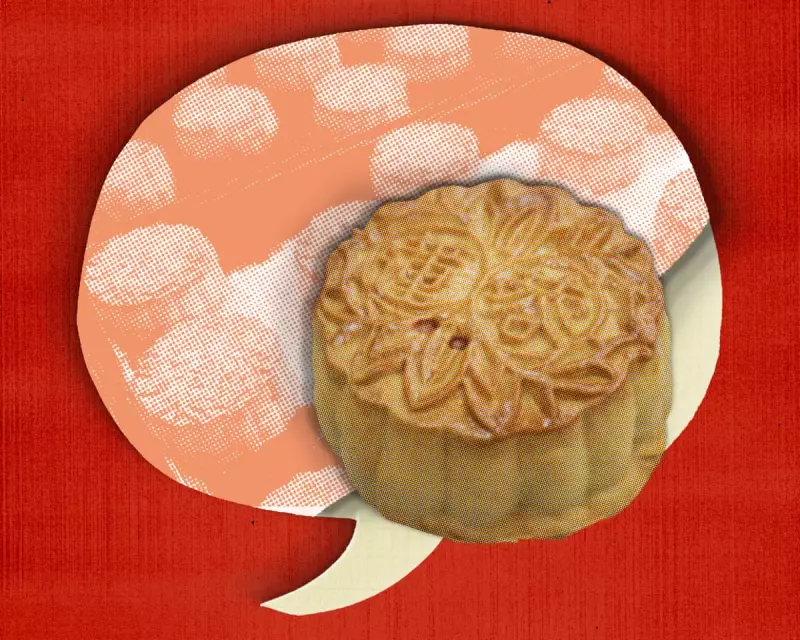
When Ying Reinhardt's aunt scolded her for not continuing her mother's baking legacy, the criticism stung deeply. But this painful moment would eventually lead to an unexpected journey of rediscovering family connections and redefining what it means to mother.
The Stinging Question That Changed Everything
"Aiyah, why don't you bake?" Aunt Julie's shrill voice echoed with disbelief during the confrontation. "You should learn how to bake for the sake of your child! Your mother was such a good baker!"
For Reinhardt, then in her second trimester of pregnancy and standing in her aunt's immaculate kitchen in Germany, the comment felt like a harsh judgement of her impending motherhood capabilities. The criticism was particularly painful coming from her mother's youngest sister – the only family member who also lived in Germany, with whom she shared a special bond.
The truth was, Reinhardt's mother had been an exceptional baker, famous among family for her melt-in-your-mouth pineapple tarts, pandan chiffon cake, and legendary butter cake that relatives still remembered with hushed awe. She maintained her recipes in a thick, blue-lined, leopard-print notebook filled with neat handwriting and yellowed magazine clippings.
Confronting Personal History and Resistance
After her mother passed away when Reinhardt was 18, the question lingered: why hadn't she learned from her mother while she had the chance? The answer revealed much about her self-perception and lifestyle.
"Baking required discipline – following instructions to the letter," Reinhardt reflected. "It required a meticulous, attentive, precise personality like my mother's. Instead, I was restless, rootless, impatient."
Her nomadic twenties involved living in rentals with strict rules or on cruise ships, often without proper kitchens or ovens. She preferred agak agak cooking – a Malay term for eyeballing measurements – guided by instinct and spontaneous whim rather than precise recipes.
Yet Aunt Julie's question planted seeds of doubt. "I began to wonder: if I didn't inherit my mother's love for baking, did that somehow make me less of a daughter?" This feeling of inadequacy followed her into early motherhood.
The Baking Breakthrough and New Understanding
The turning point came when her daughter began demanding sweet treats. Driven by a desire to offer healthier alternatives and partly to prove herself to Aunt Julie, Reinhardt tentatively began baking.
She started with safe vegan blueberry muffins ("no eggs meant fewer ways to mess up") before gradually attempting more complex recipes. When her first attempt at peanut cookies for Lunar New Year resulted in a wet, lumpy mixture resembling peanut butter, she nearly abandoned the effort.
But the following year, determined to create meaningful Lunar New Year memories for her daughter despite being far from Malaysia, she tried again with walnut cookies. This time, her rambunctious toddler joined her in the kitchen, creating uneven dough blobs with her tiny palms as they laughed together.
In that warm, butter-scented kitchen with snow coating the ground outside, something magical happened. As Reinhardt watched her daughter lick batter from her fingers, she suddenly remembered standing beside her own mother as she deftly dislodged flower blossom pineapple tarts from their moulds. "Her presence was visceral, as though baking with my daughter had brought her back."
Embracing Imperfection and Finding Meaning
The resulting walnut cookies were golf ball-sized monsters that stuck together like soft dinner rolls – hardly picture-perfect. When Reinhardt told her daughter "Your oma was a very good baker. But not mama. See? This is so ugly," the child smiled kindly and declared "Lecker!" (Delicious!).
This moment revealed the deeper truth: the cookies were hideous but delicious, and their appearance was beside the point.
Reinhardt came to understand that Aunt Julie's comment wasn't meant to make her feel inferior but to remind her of her mother's magnanimous love. Without that initial criticism, she might never have picked up a whisk.
"Learning how to bake has been a profound experience," she realized. "I came to realise I wasn't just making cookies or cakes. I was learning how to mother."
Mothering, she discovered, meant letting go of perfectionism and accepting that despite following recipe steps meticulously, she couldn't fully control outcomes. Baking became less about precision and more about showing up relentlessly for loved ones.
The journey came full circle when Aunt Julie herself asked for Reinhardt's peanut cookie recipe – now consistently turning out fine. Baking had transformed from a source of anxiety to her mother's language of love, her legacy, her masterclass in perseverance and creating warmth through food.
As Reinhardt concludes: "Maybe it will be mine too."






